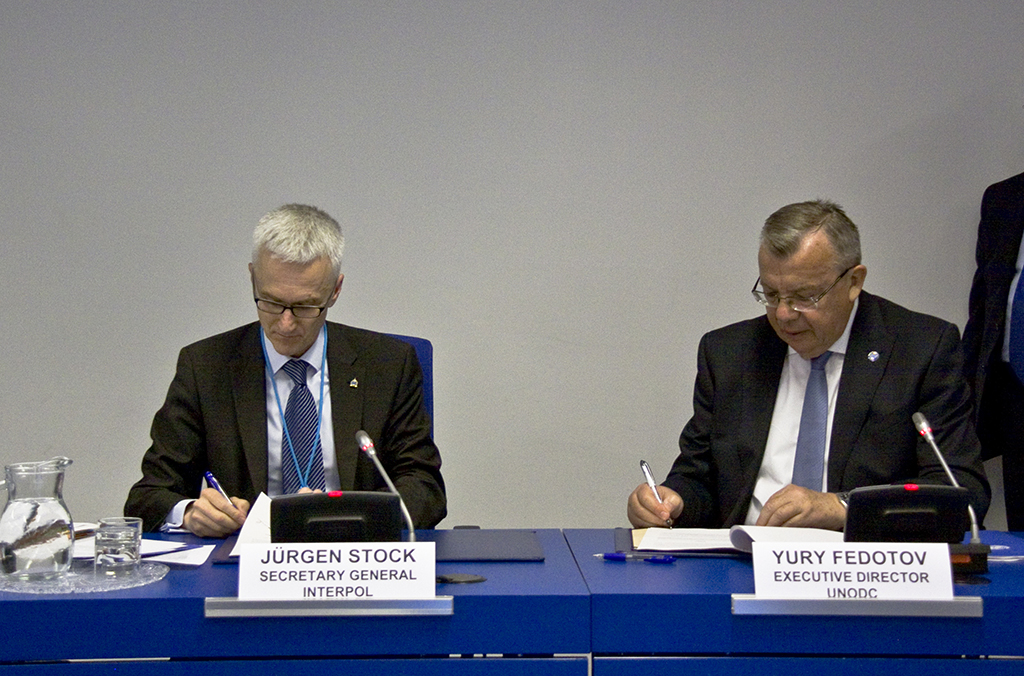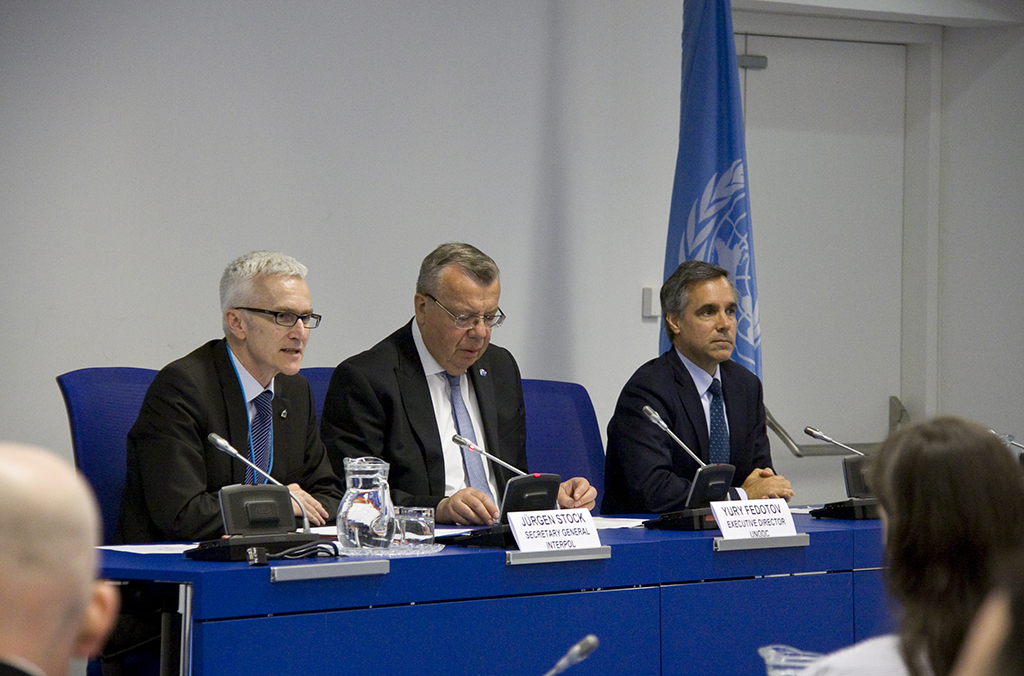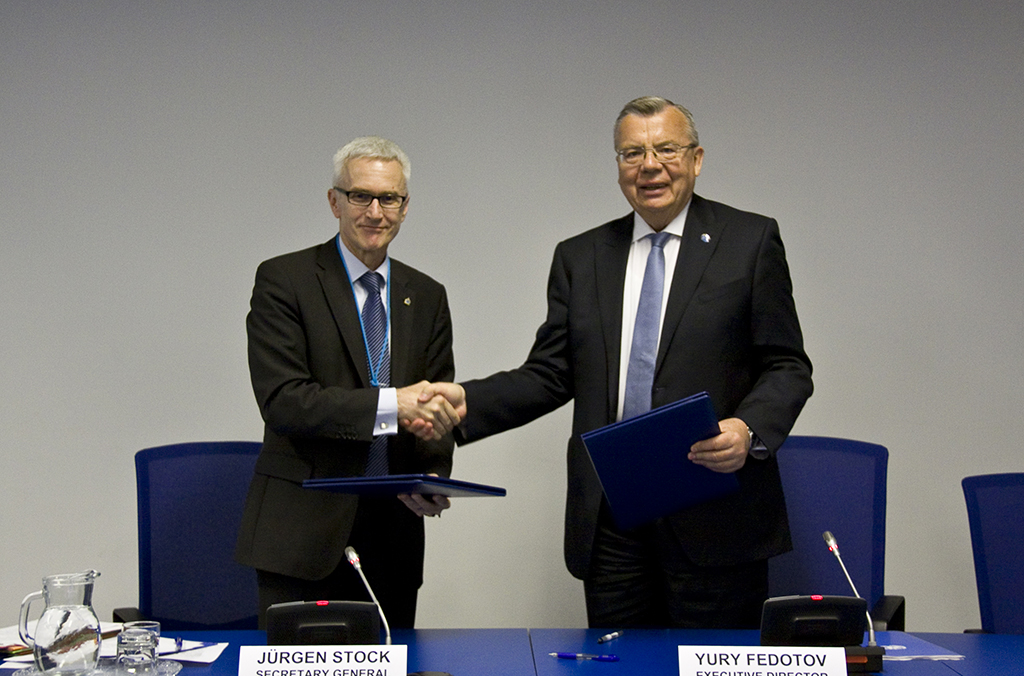VIENNA, Austria – An agreement between INTERPOL and the United Nations Office on Drugs and Crime (UNODC) will further enhance cooperation between the two organizations in their joint efforts to combat transnational crime and terrorism.
Signed by INTERPOL Secretary General Jürgen Stock and UNODC Executive Director Yury Fedotov the agreement will see the implementation of a Joint Action Plan across six common areas; terrorism, illicit trafficking and organized crime, cybercrime, maritime and border security, forensic and criminal justice capacity, and institutional capacity.
The announcement, made during the Commission on Crime Prevention and Criminal Justice (CCPCJ), will also see the two organizations develop joint initiatives and closer cooperation in the promotion and use of INTERPOL’s policing capabilities alongside UNODC technical assistance initiatives.
“INTERPOL and the UNODC have been working closely together for many years, and this agreement will provide a more strategic, forward-looking orientation for our partnership,” said Secretary General Stock.
“The increasingly complex nature of terrorism and organized crime requires a coherent and effective global response to better protect citizens and infrastructures around the world.
“This agreement will assist in avoiding the risk of overlooking any gaps or overlap in areas covered by our work to better support national crime prevention efforts,” concluded the INTERPOL Chief.
“The need for global partnerships to address shared challenges, from advancing sustainable development to countering the threats posed by transnational organized crime and terrorism, has never been more clear,” said UNODC Executive Director Yury Fedotov.
Recent examples of successful cooperation between INTERPOL and UNODC include the European Union-funded Operation Folosa in September 2015. Targeting drug trafficking from Latin America to Europe via Africa the operation resulted in the seizure of nearly 170 kilogrammes of drugs worth an estimated EUR 10 million, as well as gold coins and stolen credit cards.
In April, on behalf of the UNODC, INTERPOL’s Counterfeit and Security Documents Branch delivered a security document examination workshop in Ghana for the African region to help prevent and combat the smuggling of migrants.
Within the Network of the Law Enforcement Training Institutions (LE TrainNet) initiative, in June 2016 the INTERPOL Global Complex for Innovation in Singapore will host a joint UNODC and INTERPOL meeting to address a range of topics including cybercrime and money laundering.
The agreement between the UNODC and INTERPOL – which will be submitted to the INTERPOL General Assembly in November for approval ̶ will also provide a framework for cooperation in the delivery of the UN’s Sustainable Development Goals, in particular the implementation of Goal 16 and its associated targets of promoting peaceful, fair and inclusive societies.







